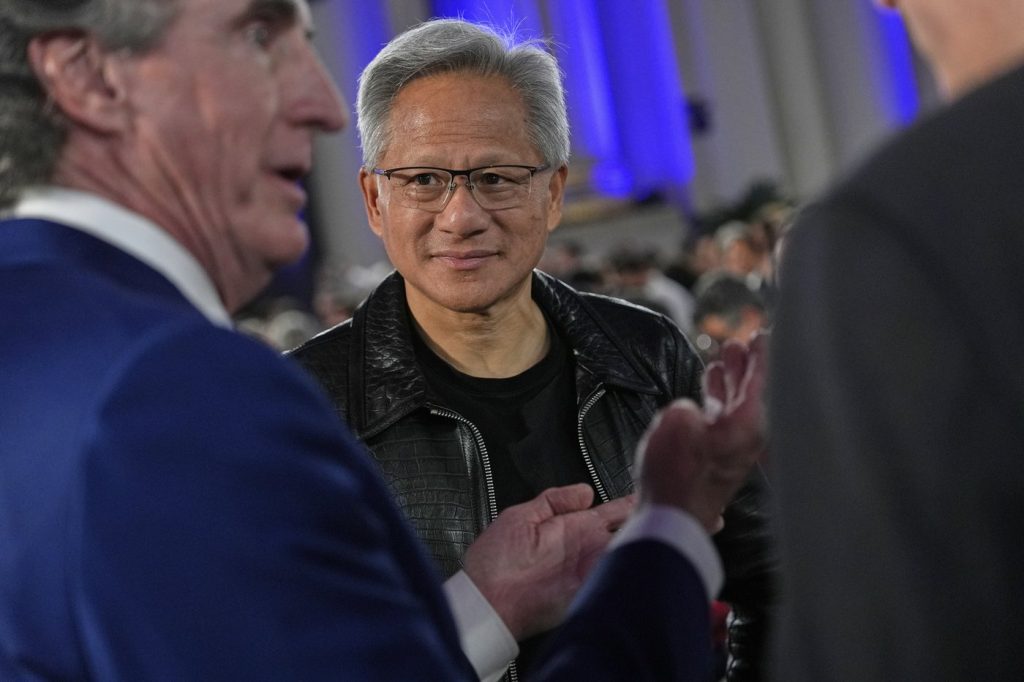On Thursday, the Cyberspace Administration of China summoned Nvidia amidst growing security concerns regarding the company's H20 chips, which have the potential to be tracked and remotely disabled. Chinese regulators requested explanations from Nvidia regarding the so-called "backdoor safety risks" associated with these chips intended for sale in China, as detailed on the regulator's official website.
An Nvidia spokesperson reassured that the company does not incorporate "backdoors" in its chips, which would allow unauthorized remote access or control. This meeting with Chinese authorities follows closely on the heels of the Trump administration's recent decision to lift a sales ban on H20 chips, enabling Nvidia to revive its business in the Chinese market. Nvidia's CEO Jensen Huang had celebrated this development with considerable enthusiasm during a visit to Beijing.
The ongoing tensions represent another chapter in the tech rivalry between the United States and China. Businesses in both nations have found themselves grappling with governmental constraints concerning market access and national security implications. The Chinese regulators expressed concerns by citing unnamed U.S. AI experts who claimed Nvidia has the capability to track, locate, and disable its computing chips remotely. This intervention by Beijing aims to "safeguard cybersecurity and data security of Chinese users" in line with local laws.
Additionally, the Chinese statement made references to a recent proposal from U.S. lawmakers advocating for tracking and locating features on advanced chips exported overseas. In May, Representatives Bill Huizenga and Bill Foster introduced the Chip Security Act, demanding that state-of-the-art chips be embedded with "security mechanisms" to combat risks such as smuggling or unauthorized exploitation. However, the bill has yet to progress through Congress since its initial introduction.
Rep. Foster, who is also a trained physicist, remarked on the technological capabilities available for preventing powerful AI technology from falling into the hands of malicious users. Meanwhile, the United States continues to impose restrictions on the sale of its most advanced chips to China, which are crucial for developing AI technologies. The Trump administration had previously enacted a ban in April on the sale of the H20 chips, which were designed to comply with U.S. export controls on AI technology to China.
Following the lift of the ban, Nvidia anticipated significant sales opportunities, projecting hundreds of thousands of additional H20 chips entering the Chinese market. Nonetheless, this shift in policy has prompted scrutiny from Capitol Hill. A group of prominent Democratic senators, including Minority Leader Chuck Schumer, recently penned a letter to Commerce Secretary Howard Lutnick expressing their "grave concerns" about the implications of these sales.
While the H20 chips may not match the capabilities of Nvidia's most sophisticated chips, like the H100, the senators warned that they provide China with resources that surpass what its domestically developed chipsets can offer. Shortly after the ban was lifted, Rep. John Moolenaar, who leads the House Select Committee on China, voiced his opposition, asserting that the Commerce Department acted prudently in previously banning the H20 and urging it to maintain that stance.
Moolenaar articulated concerns that American chips should not be utilized by the Chinese Communist Party to modernize its military, censor its populace, or undermine American innovation.











